Setting Eye Movement Data
In the EyeLook node of the Facial Profile Editor, you are able to set
the transformation limits of the Eye bones and mesh animations triggered by eye movements. After the settings, the character
can perform eye movements in Character Creator and iClone.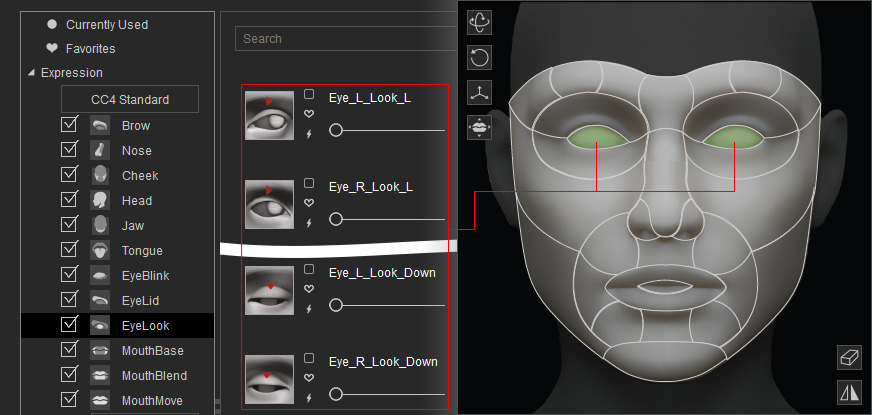
-
Make sure the character has been converted to a Humanoid character.
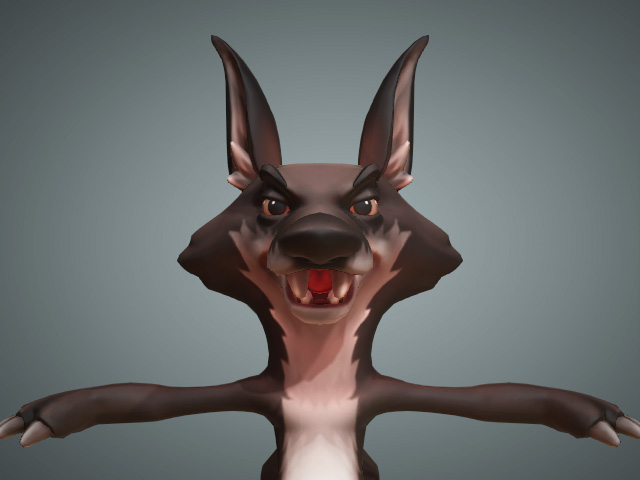
-
Click the Face Profile Editor button under the Motion Pose tab in the Modify panel.
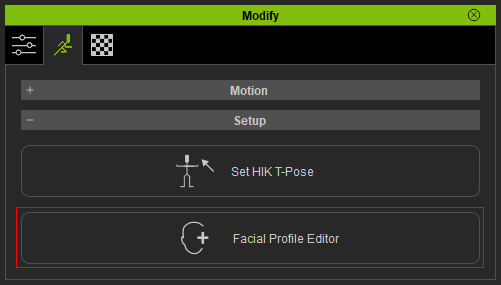
-
Select the EyeLook item from the left tree view, the related sliders will be listed in the right pane.
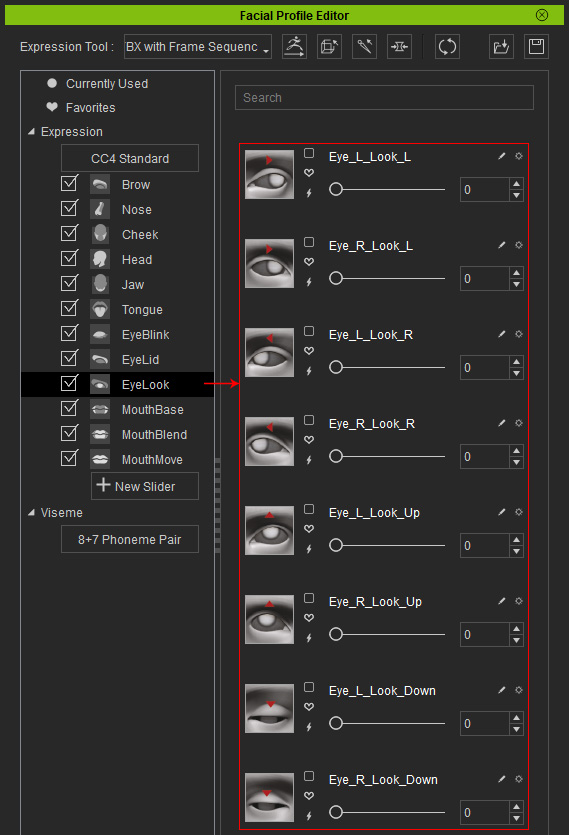
- Adjust the character's face in Bone-based, Morph-based or Hybrid-based methods.
 Bone-based
Bone-based
- Click the Proportion button at the top of the panel.

The Modify panel will enter the Proportion Mode.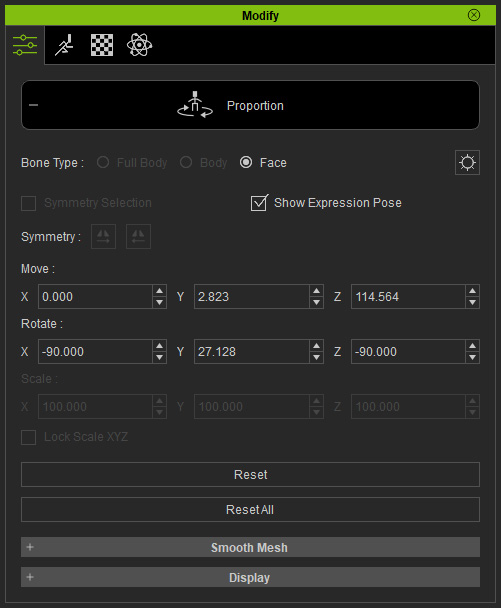
- Pick the [character name]_L_Eye bone from the Bone List panel (Shortcut: F3).
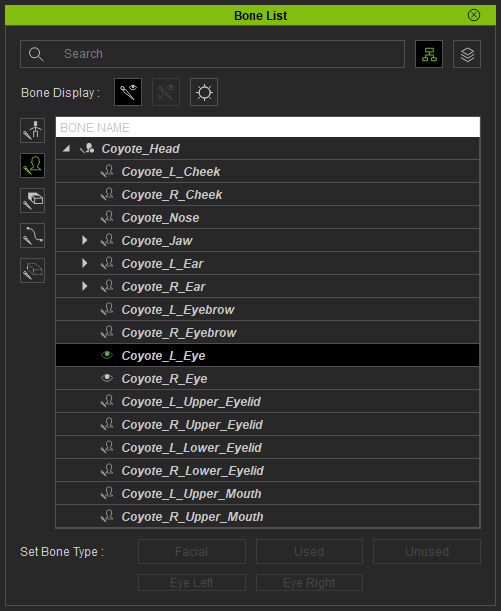
-
Rotate the eye to the desired limit direction in one axis.
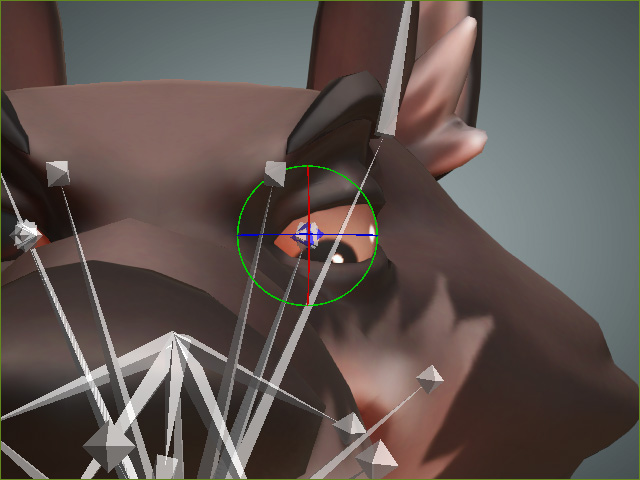
You can type in specific numbers in the Rotate fields in the Proportion panel.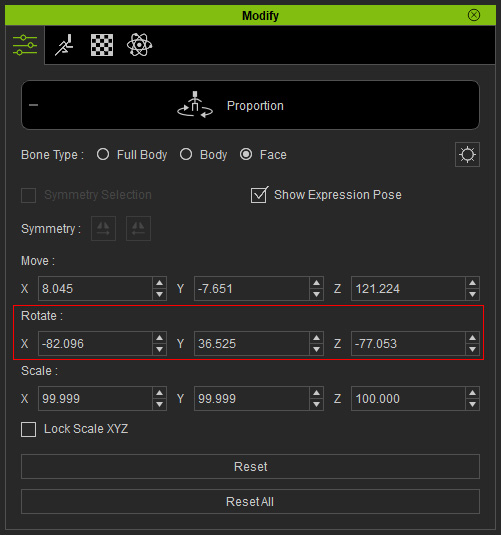
Exit the Proportion mode by clicking the Proportion button again.
- Click the Proportion button at the top of the panel.
 Morph-based
Morph-based- Click the Edit Mesh button at the top of the panel.

The Modify panel will enter the Edit Mesh Mode.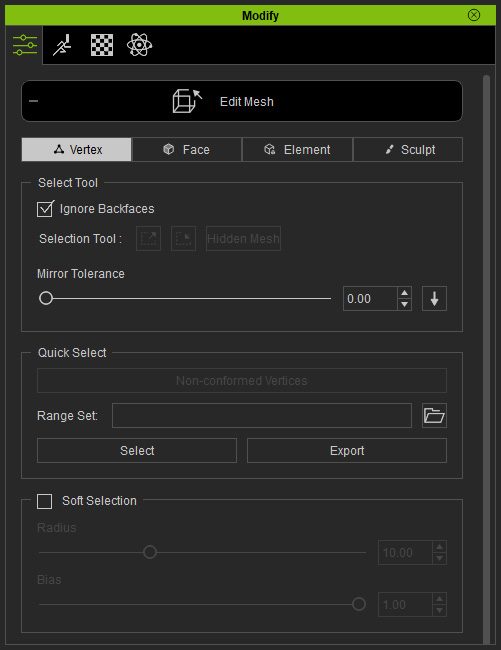
- Edit the mesh. This step ensures that the eye bone and the eyelids mesh will be animated sychronizingly.
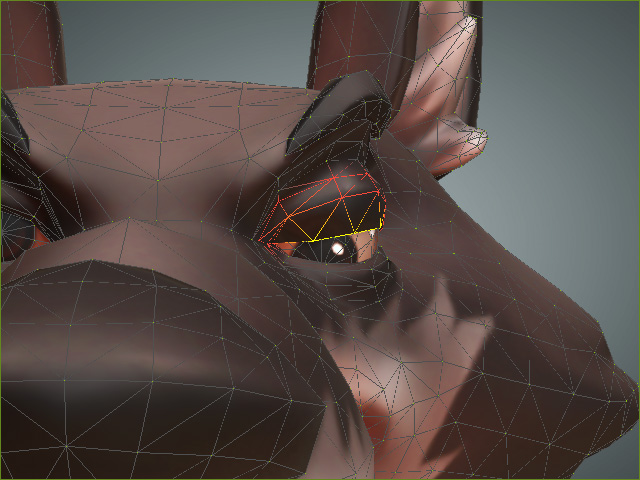
Click the Edit Mesh button again to exit the Edit Mesh mode.
- Click the Edit Mesh button at the top of the panel.
 Hybrid-based
Hybrid-basedYou can compose the character's face with both Bone-based and Morph-based to create Hybrid-based facial expressions.
- Click the Quick Update button of a slider (in this case, the Eye_L_Look_Down) for saving the limit data (both bone transformations and the mesh alterations).
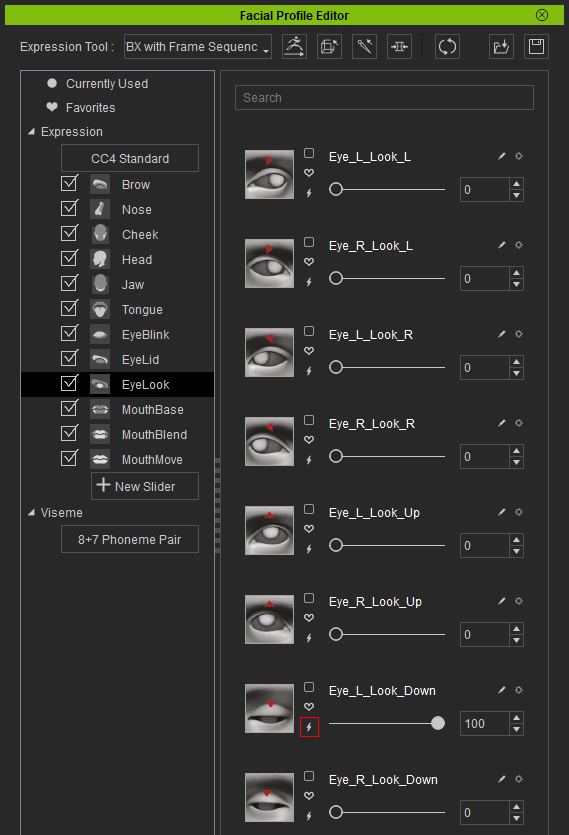
You can drag the enabled slider to check out the result.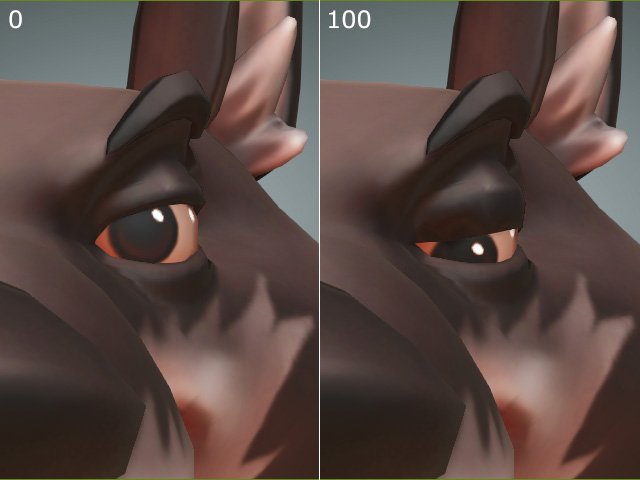
- Repeat the step for the rest of the sliders under the EyeLook item and set adequate limit data. Set the slider values for the other eye as well.
-
Once you export the character to iClone, then its eyes can
be animated via the Facial Puppeteering and Face Key panels.
